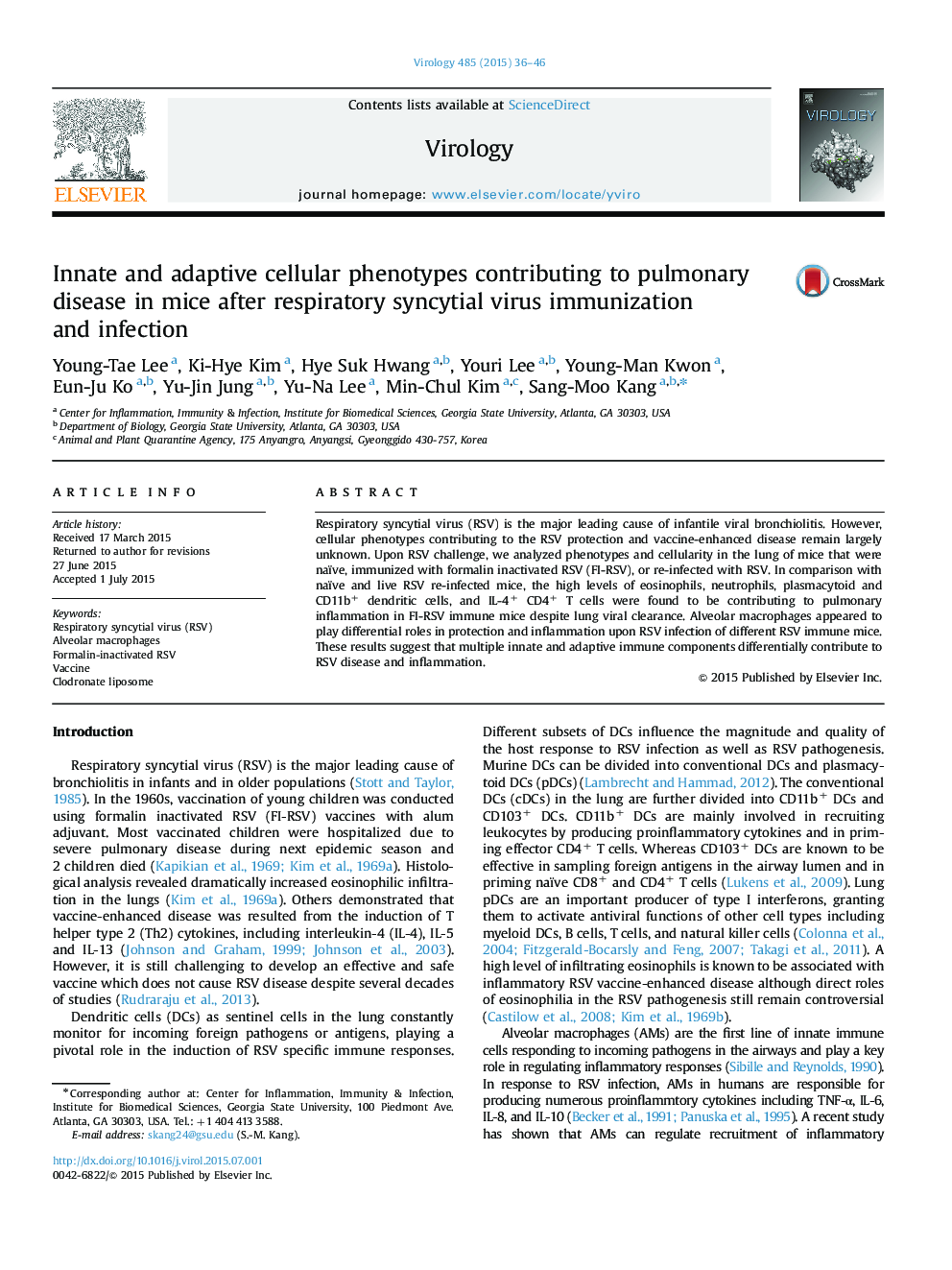| Article ID | Journal | Published Year | Pages | File Type |
|---|---|---|---|---|
| 6138925 | Virology | 2015 | 11 Pages |
Abstract
Respiratory syncytial virus (RSV) is the major leading cause of infantile viral bronchiolitis. However, cellular phenotypes contributing to the RSV protection and vaccine-enhanced disease remain largely unknown. Upon RSV challenge, we analyzed phenotypes and cellularity in the lung of mice that were naïve, immunized with formalin inactivated RSV (FI-RSV), or re-infected with RSV. In comparison with naïve and live RSV re-infected mice, the high levels of eosinophils, neutrophils, plasmacytoid and CD11b+ dendritic cells, and IL-4+ CD4+ T cells were found to be contributing to pulmonary inflammation in FI-RSV immune mice despite lung viral clearance. Alveolar macrophages appeared to play differential roles in protection and inflammation upon RSV infection of different RSV immune mice. These results suggest that multiple innate and adaptive immune components differentially contribute to RSV disease and inflammation.
Related Topics
Life Sciences
Immunology and Microbiology
Virology
Authors
Young-Tae Lee, Ki-Hye Kim, Hye Suk Hwang, Youri Lee, Young-Man Kwon, Eun-Ju Ko, Yu-Jin Jung, Yu-Na Lee, Min-Chul Kim, Sang-Moo Kang,
